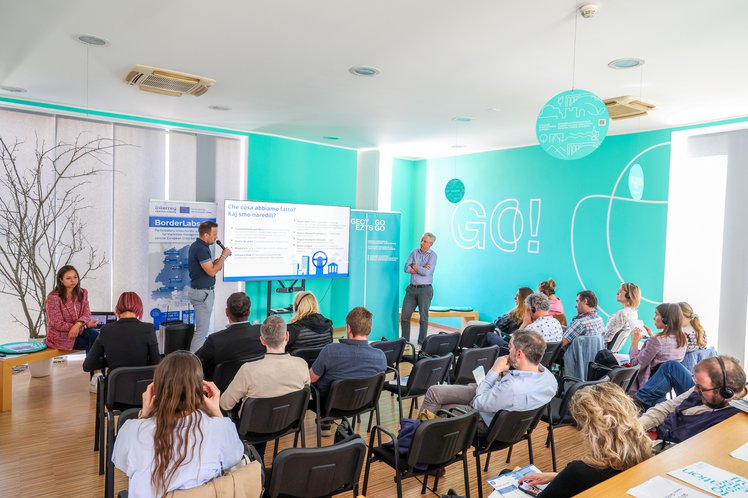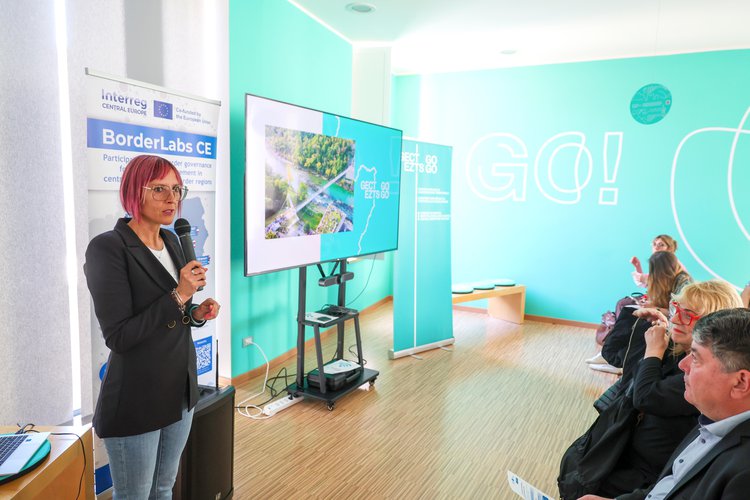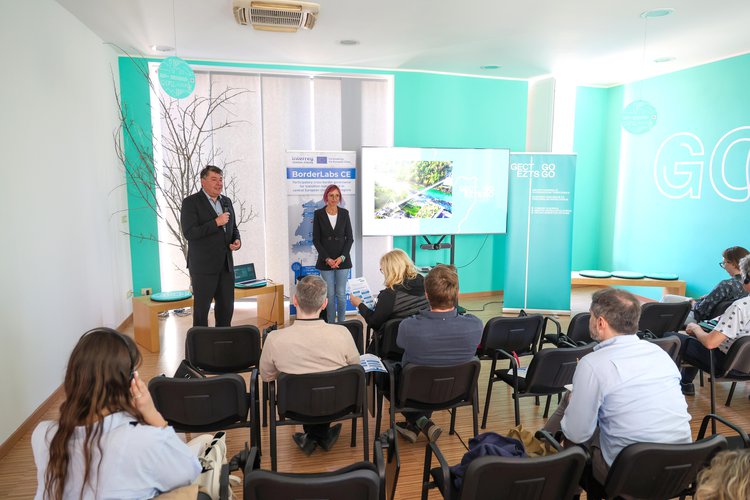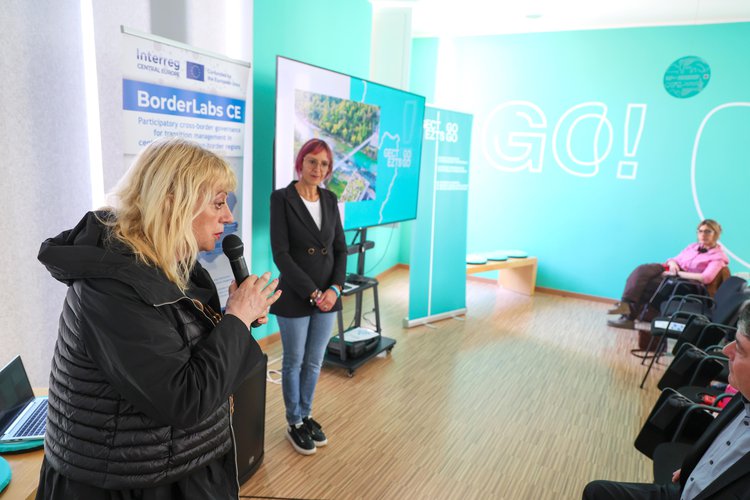A Sustainable Tourism Model Based on Cycle-mobility: The EGTC GO Pilot Action for the European Project BorderLabs CE

A model of cross-border development of slow and sustainable tourism, based on bicycle mobility: this is the aim of the action of EGTC GO within the European project BorderLabs CE.
Wednesday, April 30th marked the beginning of EGTC GO’s activities within the BorderLabs CE project (Participatory Cross-border Governance for Transition Management in Central European Border Regions), funded by the Interreg Central Europe programme. The kick-off included the official project presentation and the first participatory workshop, held at the GO! Center in Gorizia. EGTC GO is one of the project’s nine partners, alongside entities from Germany, Austria, Poland, the Czech Republic, and Hungary. The total project value is €1.7 million, with GECT GO’s budget amounting to approximately €343,000.
The project is part of the numerous other initiatives carried out by the EGTC GO on this theme, from the ITI Isonzo-Soča project to the Cyclewalk project and the SPF GO! 2025 projects. The strategic objective of the EGTC GO is also to exploit the high visibility of the European Capital of Culture GO! 2025 in order to become a sustainable tourist destination, also with a view to a post-2025 legacy.
EGTC GO’s specific goal within the project is to develop a cross-border model for slow and sustainable tourism based on bicycle mobility, integrating the peri-urban and surrounding areas of Gorizia and Nova Gorica.
Project activities include drafting an action plan for cross-border development of slow and sustainable tourism through cycle-mobility. This plan is being developed by external experts Ivan Curzolo and Matjaž Marušič, commissioned by EGTC GO. After a legal framework analysis of the Italian and Slovenian legislation relevant to cross-border cycle tourism planning (at national, regional, and local levels), the two experts conducted an analysis of existing plans in the area, mapped current initiatives to avoid overlaps, and identified synergies. The goal of the action plan is also to share the outcomes of the decisions and policy proposals that will emerge from the pilot project.
Within the EGTC GO pilot action, the installation of mobile counters for data collection along cycling and non-cycling routes is also planned in the near future. The model development process is designed as a participatory evaluation approach, involving local and regional institutions as well as tourism stakeholders across the cross-border area.
In the coming months, the project activities will include a regional workshop involving local and regional institutions, stakeholders, and tourism operators, as well as a meeting with all project partners in Gorizia and Nova Gorica. Finally, a presentation of the consolidated model for the cross-border development of slow and sustainable tourism based on bicycle mobility is planned for May next year.
"This project is an opportunity to take stock of the various cycling-related projects developed in the cross-border area, assess their strengths and weaknesses, and elaborate a strategy for future development," said EGTC GO director Romina Kocina.



Related projects
-
BorderLabs CE
Overview
As a consequence of progressing EU integration, nearly half a million citizens commute across central European borders, and several tens of thousands inhabitants have chosen municipalities beyond the border ...
Read more
BorderLabs CE
Overview As a consequence of progressing EU integration, nearly half a million citizens commute across central European borders, and several tens of thousands inhabitants have chosen municipalities beyond the border ...
Read more